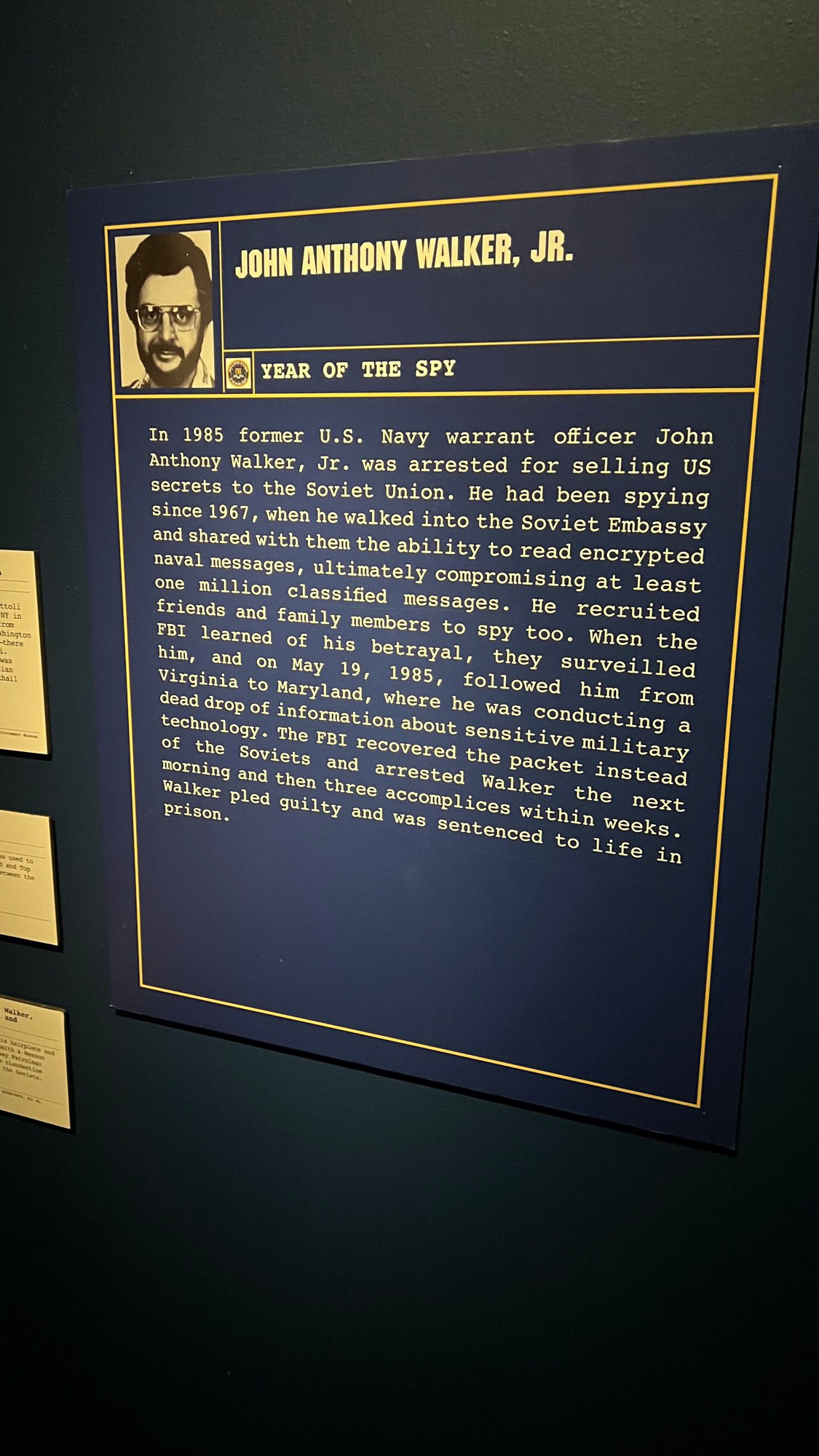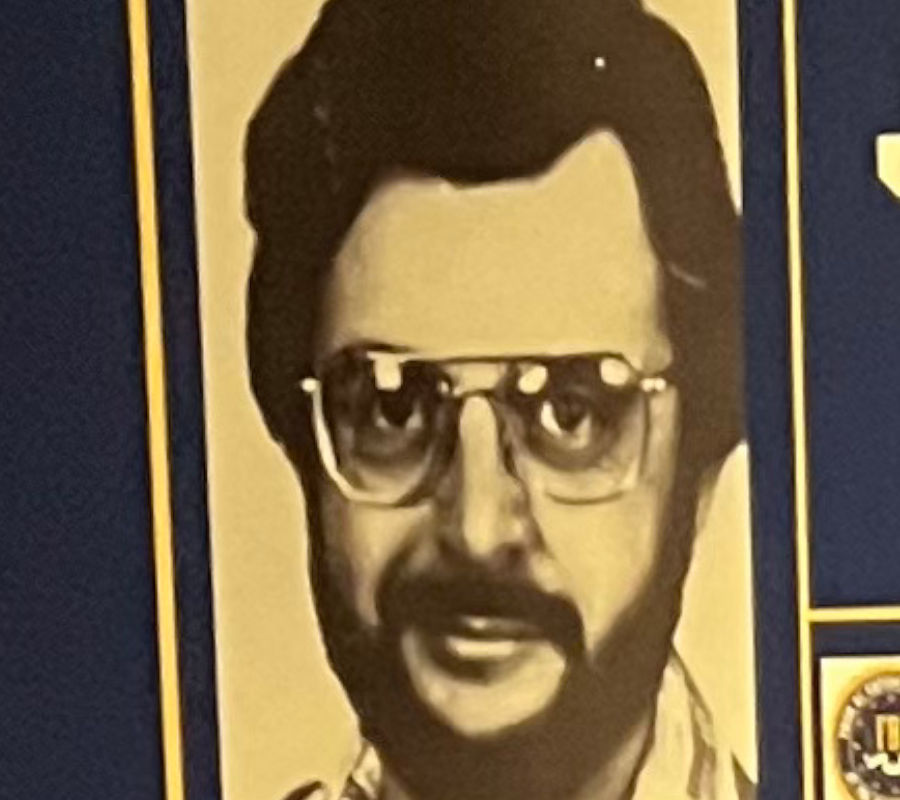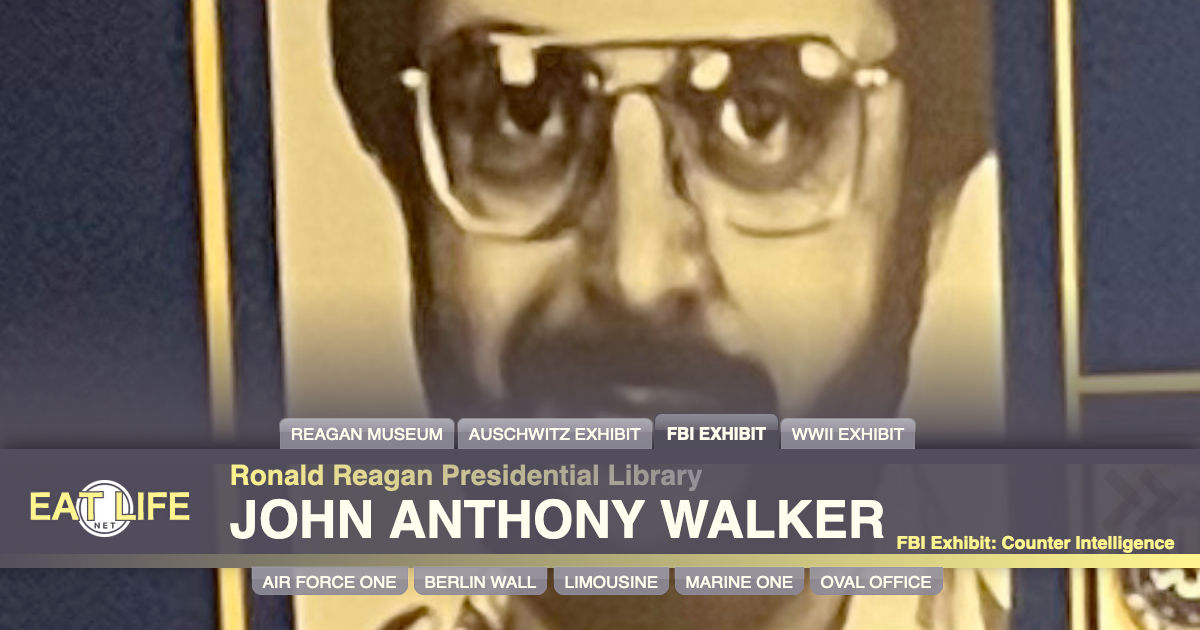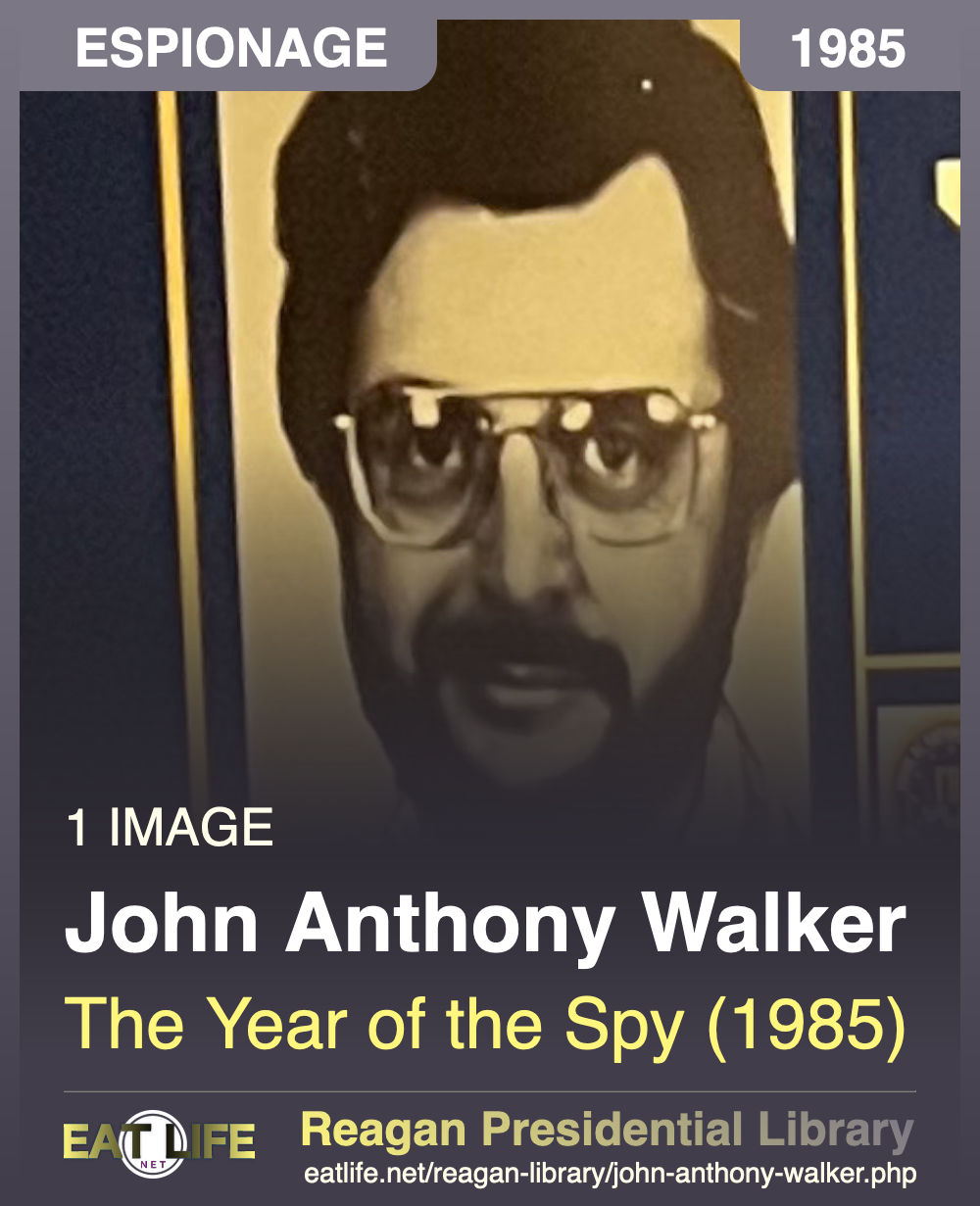
Year of the Spy
In 1985 former U.S. Navy warrant officer John Anthony Walker, Jr. was arrested for selling US secrets to the Soviet Union. He had been spying since 1967, when he walked into the Soviet Embassy and shared with them the ability to read encrypted naval messages, ultimately compromising at least one million classified messages. He recruited friends and family members to spy too. When the FBI learned of his betrayal, they surveilled him, and on May 19, 1985, followed him from Virginia to Maryland, where he was conducting a dead drop of information about sensitive military technology. The FBI recovered the packet instead of the Soviets and arrested Walker the next morning and then three accomplices within weeks. Walker plead guilty and was sentenced to life in prison.
FBIThe Year of the Spy
The Cold War was on its last gasps, but you would have never guessed it by all the moles in the U.S. government who were passing secrets.It was 1985 - and as a result of a string of high-profile espionage arrests by the FBI and its partners, the press dubbed it the "Year of the Spy."
Among those identified and their stories:
- John Anthony Walker, Jr.
- U.S. government job: U.S. Navy Warrant Officer and communications specialist, 1967 to 1985.
- Also worked for: The Soviet Union.
- Secrets passed: For more than 17 years, Walker provided top cryptographic secrets to the Soviets, compromising at least one million classified messages. After retiring from the Navy, he also recruited three people with security clearances into his espionage ring: his brother Arthur, his son Michael, and his good friend Jerry Whitworth. The information passed by Walker and his confederates would have been devastating to the U.S. had the nation gone to war with the Soviets.
- How discovered: A tip from his ex-wife.
- Fate: Arrested on May 20, 1985, pled guilty, and sentenced to life in prison.
- Jonathan Jay Pollard
- U.S. government job: Civilian intelligence analyst at the Navy's Anti-Terrorist Alert Center in Maryland.
- Also worked for: Israel.
- Secrets passed: Started selling sensitive documents in 1984; the actual content has not been revealed but the quantity was significant. His wife Anne assisted him.
- How discovered: Co-workers grew suspicious.
- Fate: Arrested along with his wife Anne on November 21, 1985, outside the Israeli Embassy; both pled guilty the following year, with Jonathan Pollard receiving a life sentence.
- Sharon Marie Scranage
- U.S. government job: CIA stenographer stationed in Ghana.
- Also worked for: Ghana.
- Secrets passed: Scranage began dating Michael Soussoudis, a cousin of the Ghanaian head of state, in 1983. She provided him with CIA information, including the identity of CIA affiliates and intelligence on communications, radio, and military equipment.
- How discovered: Routine CIA polygraph raised suspicions.
- Fate: Charged along with boyfriend in July 1985, pleaded guilty, and sentenced to five years in prison.
- Larry Wu-tai Chin
- U.S. government job: Chinese language translator/intelligence officer for CIA, 1952 to 1981.
- Also worked for: China.
- Secrets passed: Classified documents and photographs, including CIA reports on the Far East.
- How discovered: Not revealed.
- Fate: Arrested on November 23, 1985; convicted at trial but committed suicide before sentencing.
- Ronald William Pelton
- U.S. government job: Communications specialist, National Security Agency.
- Also worked for: The Soviet Union.
- Secrets passed: Because of money problems, Pelton went to the Soviet Embassy in Washington, D.C. shortly after resigning from the National Security Agency and offered to sell secrets. Provided classified information for five years, including details on U.S. collection programs targeting the Soviets.
- How discovered: Information provided by a KGB defector.
- Fate: Arrested on November 25, 1985, convicted, and sentenced to life in prison.
These are just a few of the dozens of spies who the FBI identified and arrested during the 1980s, including 12 in 1984 alone. For the Bureau, it wasn't the "Year of the Spy" - it was the "Decade of the Spy."
WIKIPEDIA John Anthony Walker Jr.
July 28, 1937 – August 28, 2014
A United States Navy chief warrant officer and communications specialist convicted of spying for the Soviet Union from 1967 to 1985 and sentenced to life in prison.In late 1985, Walker made a plea bargain with federal prosecutors, which required him to provide full details of his espionage activities and testify against his co-conspirator, former senior chief petty officer Jerry Whitworth. In exchange, prosecutors agreed to a lesser sentence for Walker's son, former Seaman Michael Walker, who was also involved in the spy ring. During his time as a Soviet spy, Walker helped the Soviets decipher more than one million encrypted naval messages, organizing a spy operation that The New York Times reported in 1987 "is sometimes described as the most damaging Soviet spy ring in history."
After Walker's arrest, Caspar Weinberger, President Ronald Reagan's Secretary of Defense, concluded that the Soviet Union made significant gains in naval warfare attributable to Walker's spying. Weinberger stated that the information Walker gave Moscow allowed the Soviets "access to weapons and sensor data and naval tactics, terrorist threats, and surface, submarine, and airborne training, readiness and tactics."
In the June 2010 issue of Naval History Magazine, John Prados, a senior fellow with the National Security Archive in Washington, D.C., pointed out that after Walker introduced himself to Soviet officials, North Korean forces seized USS Pueblo in order to make better use of Walker's spying. Prados added that North Korea subsequently shared information gleaned from the spy ship with the Soviets, enabling them to build replicas and gain access to the U.S. naval communications system, which continued until the system was completely revamped in the late 1980s. It has emerged in recent years that North Korea acted alone and the incident actually harmed North Korea's relations with most of the Eastern Bloc.
When Walker began spying, he worked as a key supervisor in the communications center for the U.S. Atlantic Fleet's submarine force, and he would have had knowledge of top-secret technologies, such as the SOSUS underwater surveillance system, which tracks underwater acoustics via a network of submerged hydrophones. It was through Walker that the Soviets became aware that the U.S. Navy was able to track the location of Soviet submarines by the cavitation produced by their propellers. After this, the propellers on the Soviet submarines were improved to reduce cavitation. The Toshiba-Kongsberg scandal was disclosed in this activity in 1987.
USS Pueblo
It is also alleged that Walker's actions precipitated the seizure of USS Pueblo. CIA historian H. Keith Melton states on the show Top Secrets of the CIA, which aired on the Military Channel, among other occasions, at 0400CST, February 5, 2013:
H. Keith MeltonThe Soviets had intercepted our coded messages, but they had never been able to read them. And with Walker providing the code cards, this was one-half of what they needed to read the messages. The other half they needed were the machines themselves. Though Walker could give them repair manuals, he couldn't give them machines. So, within a month of John Walker volunteering his services, the Soviets arranged, through the North Koreans, to hijack a United States Navy ship with its cipher machines, and that was the USS Pueblo. And in early 1968 they captured the Pueblo, they took it into Wonsan Harbor, they quickly took the machines off ... flew 'em to Moscow. Now Moscow had both parts of the puzzle. They had the machine and they had an American spy, in place, in Norfolk, with the code cards and with access to them.









